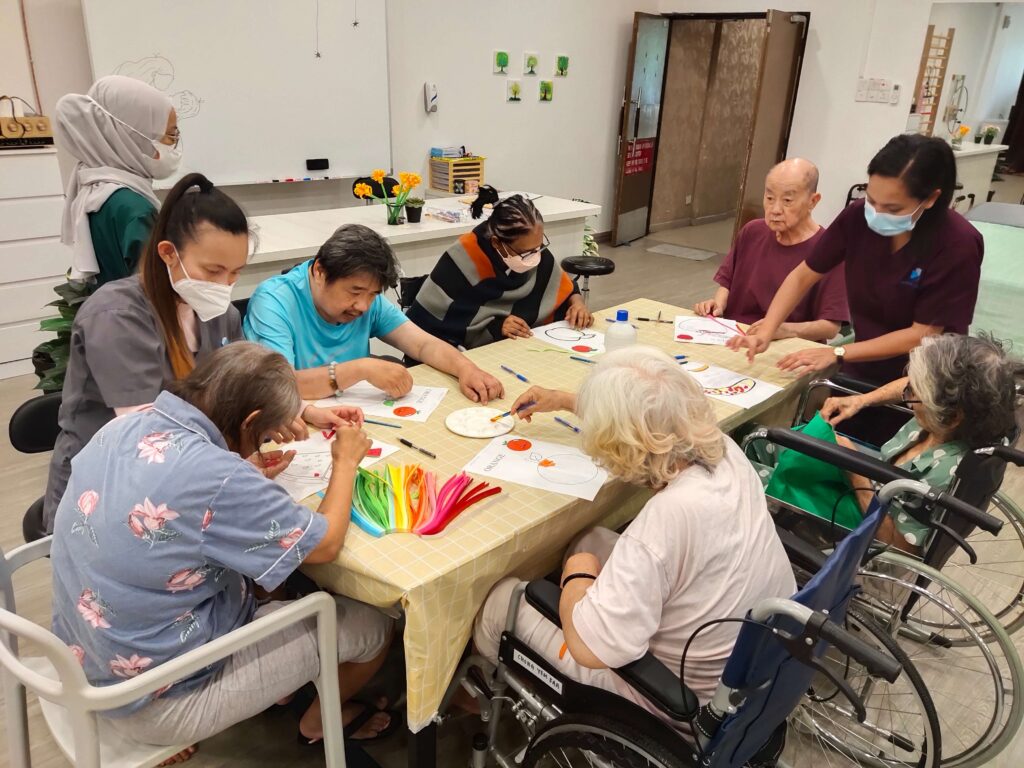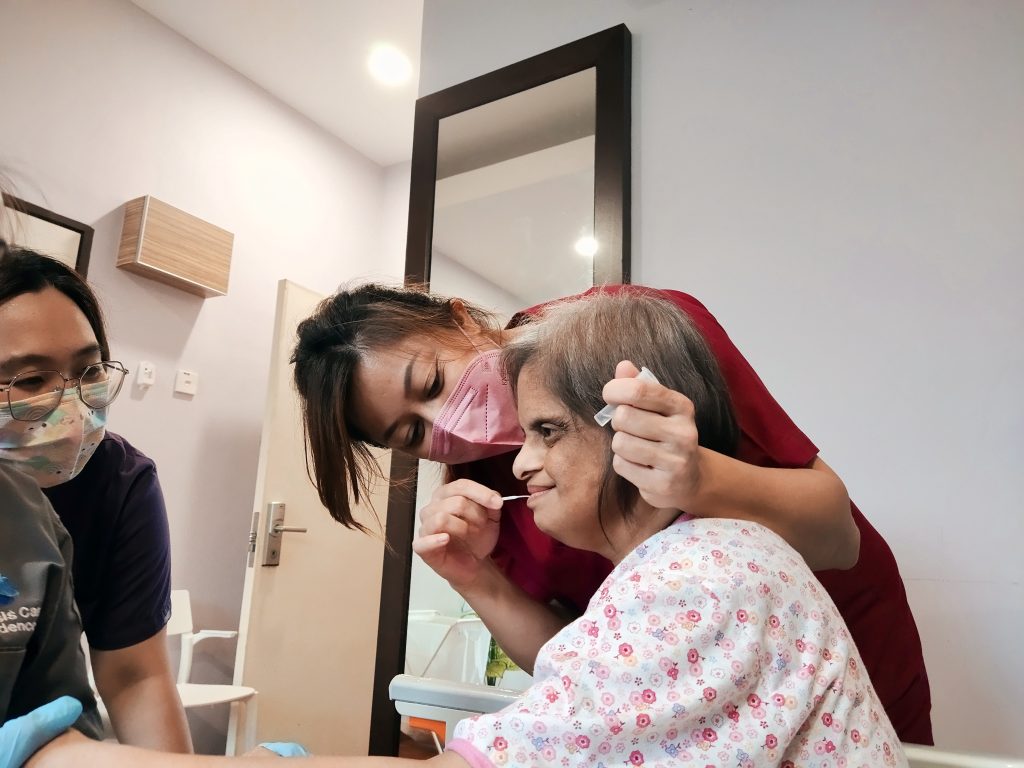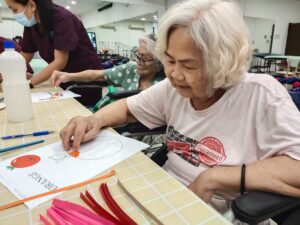
Top 10 Nursing Home’s in Klang (2026)
Searching for an nursing home in Klang? Here’s a list of the Top 10 Nursing Home in Klang 2025 Choosing the right nursing home for

Dementia care requires a specialized approach to support cognitive function and improve the quality of life for residents. As dementia progresses, the need for structured care becomes vital, making nursing homes, life care centers, and assisted living facilities key players in memory care. In this article, we’ll explore how these environments enhance memory care for residents with dementia, ensuring safety, engagement, and a sense of belonging.
1. Safe and Supportive Environment
A fundamental element of memory care is creating a safe and supportive environment. Nursing homes and old folks’ homes are designed with safety features like secured exits, clear pathways, and non-slip flooring, which minimize the risks of falls or wandering. In assisted living facilities, safety measures are complemented by individualized supervision, making them a secure option for residents with dementia.
Residents benefit from features like:
Controlled access and secure doors to prevent wandering.
CCTV monitoring to ensure residents’ safety.
Calming layouts that minimize confusion and reduce anxiety.
2. Personalized Life Care Programs
At the heart of dementia care in nursing homes and life care centers are personalized programs tailored to each resident’s cognitive needs. Life care facilities focus on individualized attention, ensuring that residents’ personal and medical needs are met.
These personalized programs often include:
Daily routines that help establish consistency and reduce anxiety.
Personalized activity schedules based on the resident’s history, hobbies, and preferences.
Specialized nutrition plans to maintain physical and cognitive health.
3. Specialized Memory Care Activities
To enhance cognitive function and slow the progression of dementia, memory care activities are regularly integrated into residents’ routines. These activities are thoughtfully designed to be engaging, therapeutic, and suitable for different stages of dementia. Here are some common examples:
Memorization Activities: Games like matching cards, flashcards, or simple memory-based board games encourage residents to recall information and strengthen cognitive skills.
Art and Music Therapy: Painting, drawing, and listening to familiar music have been shown to evoke memories and emotions, improving mental well-being and reducing agitation.
Reminiscence Therapy: This involves using photographs, personal items, or familiar scents to trigger memories and stimulate conversation. Residents are encouraged to share their stories, which helps boost memory retention and provides emotional comfort.
Puzzles and Word Games: Jigsaw puzzles, crossword puzzles, and word searches challenge cognitive skills and promote problem-solving abilities.
Physical Exercise: Simple exercises, like chair yoga, walking, or dancing, improve physical health and enhance brain function. These activities also increase social interaction, which is crucial for emotional well-being.

4. Emotional and Behavioral Support
Memory care programs in nursing homes and assisted living facilities offer more than just cognitive stimulation; they provide emotional and behavioral support. Dementia often comes with changes in mood, behavior, and social skills, making comprehensive care essential. Staff members are trained in:
Managing challenging behaviors such as aggression, anxiety, or depression.
Providing emotional support during times of confusion or distress.
Encouraging social interaction through group activities that promote friendships and reduce isolation.
5. Skilled Staff and Professional Care
Nursing homes and old folks’ homes prioritize hiring trained staff to deliver professional dementia care. Caregivers, nurses, and therapists undergo regular training on the latest dementia care techniques and strategies. This ensures residents receive the highest standard of care, including:
Round-the-clock supervision and prompt medical attention.
Compassionate caregiving that helps build trust and creates a sense of security.
Regular assessments to track changes in cognitive function and adjust care plans accordingly.
6. Family Involvement and Communication
Family members play an integral role in memory care. Nursing homes and life care centers encourage family participation, whether through regular visits, care plan meetings, or communication updates. Some facilities even offer family support groups, where caregivers can share their experiences and learn coping strategies.
Facilities ensure clear communication by:
Providing updates on the resident’s progress and any changes in behavior.
Encouraging family visits and participation in special events.
Offering educational sessions to help families better understand dementia.
Conclusion
Nursing homes, and assisted living facilities play a crucial role in enhancing memory care for residents with dementia. By providing a safe environment, personalized care plans, engaging activities, and professional staff, these facilities ensure that residents maintain their dignity and quality of life. Memory care goes beyond physical assistance; it fosters a nurturing environment that supports cognitive, emotional, and social well-being, creating a positive impact on residents and their families.
If you are considering an old folks’ home or a memory care facility for your loved one, it’s essential to visit the center, speak with the staff, and understand the specific dementia care programs they offer to ensure the best possible support for your loved one.

Searching for an nursing home in Klang? Here’s a list of the Top 10 Nursing Home in Klang 2025 Choosing the right nursing home for

Searching for a nursing home in PJ? Here’s a list of the Top 10 Nursing Home in Petaling Jaya 2025 Choosing the right nursing home

Searching for a nursing home in Johor Bahru? Here’s a list of the Top 10 Nursing Home in Johor Bahru (2025) Choosing the right nursing

Searching for an nursing home in Puchong? Here’s a list of the Top 5 Nursing Home in Puchong 2025 Choosing the right nursing home for

The Benefits of Professional Dementia Care Services Dementia is a complex condition that impacts not only the individual diagnosed but also their family and caregivers.

Post-Stroke Care Facilities in Malaysia: Comprehensive Support for Recovery Recovering from a stroke can be a challenging journey, requiring specialized care, rehabilitation, and emotional support.